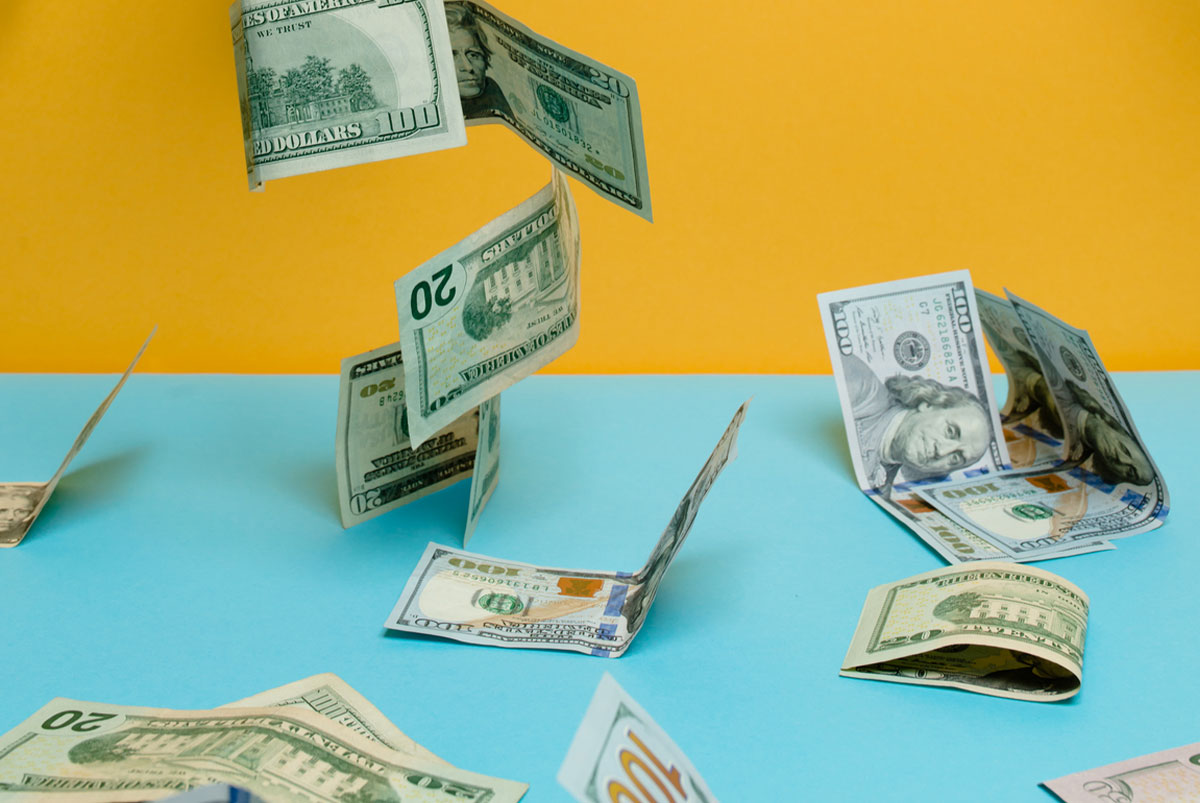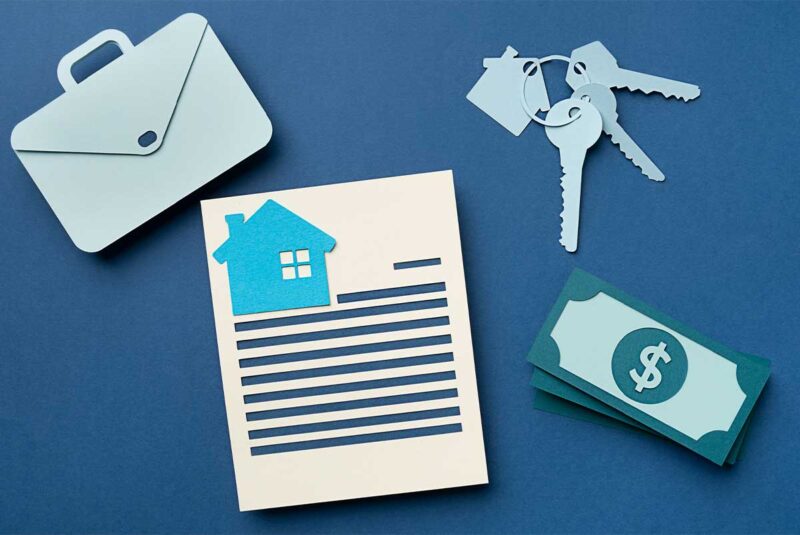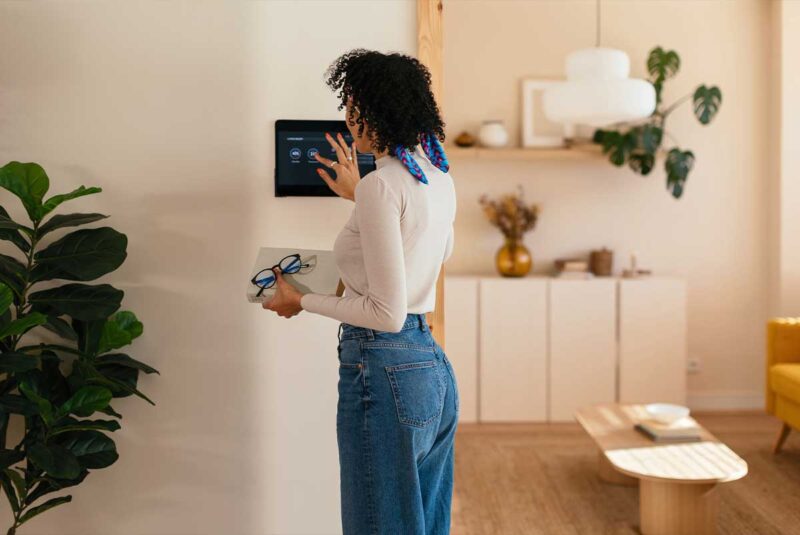Ready To Buy a Home?
Get Approved to Buy a Home
Rocket Mortgage® lets you get to house hunting sooner.
For many prospective home buyers, coming up with a down payment can be the obstacle standing between them and buying a house. As a first-time home buyer, saving enough cash for a down payment can be extremely challenging, especially when you have to keep up with rent payments, a car loan and other recurring expenses.
Fortunately, not all home loans require a down payment, and many will accept a relatively low down payment. Let’s discuss the different loan options, the down payment requirements for each and the advantages of a large or small down payment.
Understanding Down Payments
Explore Your Mortgage Options
What are you looking to do?
A down payment is the upfront cash contribution you pay when you buy a home.
Lenders usually require a down payment to help protect themselves from the risk of borrowers being delinquent on their mortgage or defaulting. If a lender doesn’t have a down payment requirement and loans you 100% of the home’s value, they’ll be taking a lot of risk if you fail to make payments.
As a result, if you default on your mortgage, your lender will take a more severe loss than if you had contributed a down payment.
While most mortgage loans have a minimum down payment requirement for the reasons above, many borrowers choose to put down more than the minimum. Though a larger down payment might seem like a costly proposition, it can actually save you money by lowering your monthly payments and reducing the amount of interest you pay over the life of the loan.
What Is the Minimum Down Payment for a House?
Traditionally, mortgage lenders requested a down payment of 20%. Some lenders may allow you to pay less, but you’ll likely need to pay for private mortgage insurance (PMI).
That said, some mortgages let you buy a home with a low or 0% down payment, but you’ll need to meet the lender’s eligibility criteria to qualify.
- 0% down payment: While most home loans have a down payment requirement, it’s possible to buy a house with no money down thanks to certain types of government-backed loans – like U.S. Department of Veterans Affairs (VA) loans and U.S. Department of Agriculture (USDA) loans.
- 3% down payment: Some conventional loans only require a 3% down payment for qualified borrowers. For example, Fannie Mae offers a 3% down payment option to first-time home buyers through its HomeReady Mortgage program.
- 3.5% down payment: Federal Housing Administration (FHA) loans are government-backed mortgages designed to improve home affordability and make homeownership more accessible. FHA loans allow borrowers to put down as little a 3.5% of the home’s purchase price, provided they have a credit score of at least 580 and plan to use it as a primary residence.[1]
Do you have to put 20% down on a house?
There’s no law requiring you to put 20% down when you buy a house. In fact, the average down payment for first-time home buyers is just 7%.[2] if you have the cash on hand and opt for a 20% down payment, doing so comes with cost savings and other advantages.
What is the minimum down payment for a jumbo loan?
Jumbo loans, which are loans that exceed the Federal Housing Finance Agency (FHFA) conforming loan limit, often require a minimum down payment of 5% – 10% of the sale price. They’ll also have stricter credit requirements, typically 680 or higher.
How Much Should You Put Down on a House?
The amount you should put down on a house depends on your financial situation, interest rates and personal preferences.
For many home buyers, saving enough for a larger down payment isn’t worth postponing homeownership. But for those with the ability to put more cash down upfront, this tradeoff offers savings on interest, lower monthly mortgage payments and more equity in the home.
Reasons to choose a bigger down payment
Though it might feel painful to fork over tens of thousands of dollars at closing, a bigger down payment comes with several benefits.
- Lower mortgage rate: A larger down payment can help you get the lowest possible interest rate on your mortgage. The bigger your down payment, the less risk your lender assumes, and the more willing they’ll be to offer you a competitive interest rate.
- Lower monthly payment: When you make a bigger down payment, you’ll borrow less money, pay less interest overall and have a lower monthly payment compared to a larger loan amount.
- More equity: Since your down payment goes directly toward your ownership stake in the house, you’ll have more equity right out of the gate. If you need money later, you can look into borrowing against that home equity with a home equity loan or home equity line of credit (HELOC).
- No PMI: If you have a conventional mortgage and put down less than 20% of the purchase price, you’ll have to pay for PMI until your loan-to-value (LTV) ratio hits 80%.
- More competitive offer: When you make an offer on a home, a larger down payment can indicate to the seller and their realtor that you’re a serious buyer. Having the funds to close on the deal can give you a potential advantage over competing offers.
Reasons to choose a smaller down payment
A larger down payment is a great option if you can afford it, but a smaller down payment comes with its own advantages.
- Become a homeowner faster: A smaller down payment may make becoming a homeowner attainable sooner.
- Lock in your interest rate: Saving for a 20% down payment can take a long time, which may result in missing the opportunity to take advantage of low interest rates. If rates seem poised to increase, buying with whatever down payment you have can help you lock in your interest rate.
- Get higher rates of return on your investment: A dollar sitting in your bank account won’t grow very quickly. When you invest your money in a house, there’s a solid chance the home will appreciate over time.
There are plenty of reasons to choose a larger down payment or a smaller down payment, but which path you choose is a personal decision only you can make.
How To Calculate a Down Payment
You can calculate a down payment amount by multiplying the percentage of the down payment by the purchase price of the home.
The formula looks like this: Down payment = Purchase price x down payment percentage.
Let’s do the math for five different down payments on a $250,000 house.
| Down Payment % | Total Down Payment |
| 3% | $7,500 |
| 3.5% | $8,750 |
| 5% | $12,500 |
| 10% | $25,000 |
| 20% | $50,000 |
If you’re considering a larger down payment, it’s helpful to know how much you’ll need to save to cover it.
Don’t Let the Down Payment Keep You Down
Choosing how much to put down on a house is important, but it isn’t the only thing you should consider when determining how much house you can afford. If you can afford to put up a larger down payment, the benefits may be worth the upfront cost. However, if you’re light on cash, don’t let the idea that you need a 20% down payment stop you from achieving your dream of buying a home.
The Short Version
- A down payment is the upfront cash contribution you pay when you buy a home
- Some mortgages let you buy a home with a low or 0% down payment, but you’ll need to meet the lender’s eligibility criteria to qualify
- The average first-time home buyer puts down around 6% (a more manageable amount for many young adults eager to host their first housewarming party)
Federal Deposit Insurance Corporation. “203(b) Mortgage Insurance Program.” Retrieved November 2022 from https://www.fdic.gov/resources/bankers/affordable-mortgage-lending-center/guide/part-1-docs/203b-mortgage-insurance-program.pdf
National Association of Realtors. “Tackling Home Financing and Down Payment Misconceptions.” Retrieved November 2022 from https://www.nar.realtor/blogs/economists-outlook/tackling-home-financing-and-down-payment-misconceptions




